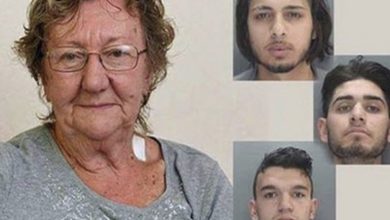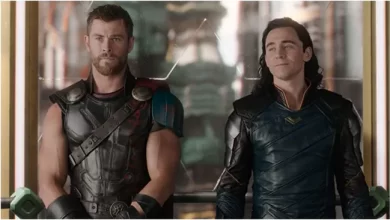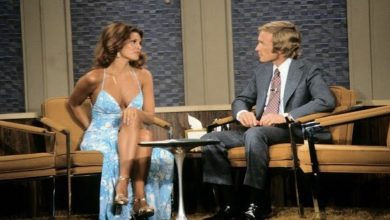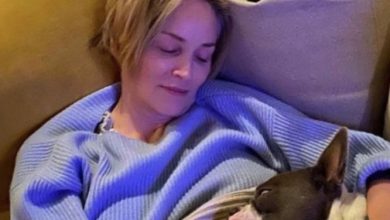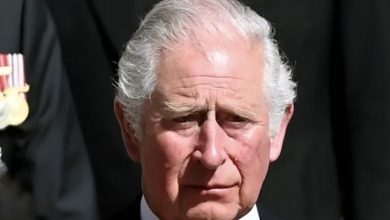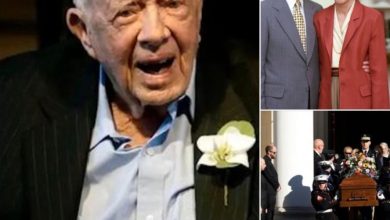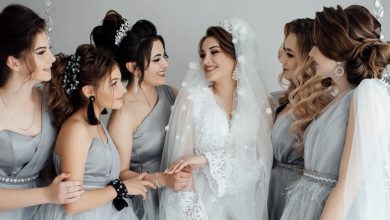After a twelve-hour trip that included three flight delays, I turned up unannounced at the cabin where my husband was spending a guys’ weekend.
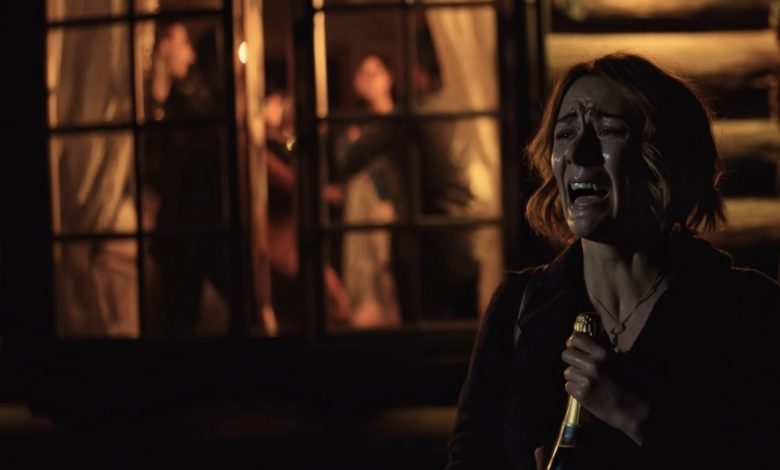
I had been on airplanes for almost half a day—twelve hours in the air, with three frustrating delays—just so I could surprise my husband, David, at his “guys’ cabin weekend.” I’d wrapped a bottle of his favorite Blanton’s bourbon carefully in my luggage, imagining how delighted he’d be when I suddenly appeared on the cabin’s creaky front porch. My heart was pounding with excitement as I stood there in the late afternoon light, the gift heavy in my hand, the pine-scented breeze carrying echoes of laughter from inside. Then I heard him, speaking in a calm voice that shattered every dream I’d held onto during those long hours of travel.
“If she vanished, that insurance money could clear my debts.”
The words were so ordinary in his tone—as casual as if he were commenting on the weather—that I froze. A ripple of laughter followed from inside. One of his friends said, “Or he could date her sister without feeling guilty.” They laughed again, as though this were the funniest joke they’d heard all day. My chest tightened, a cold knot forming in my stomach. The bottle of bourbon felt grotesquely heavy, like a weight dragging me down into a nightmare. Without thinking, I set it gently on the worn wooden step, turned on my heel, and walked away without a word.
I grew up as Sophia Reynolds, the daughter of a prominent real estate mogul. My childhood memories are full of sprawling estates, luxury cars glinting in marble driveways, family dinners served on silver platters. Still, I always tried to carve out my own path, to prove I wasn’t just “the rich girl.” When I first met David at a charity fundraiser—he was volunteering at the silent auction table—he seemed genuinely indifferent to all that money around me. He joked easily, smiled honestly, and looked me in the eye instead of at my designer shoes. In him, I saw a partner who valued character over cash.
Not long after we fell in love, we married in a small ceremony. But when my father learned that we’d done so without a prenuptial agreement, he didn’t hide his worry. He took me aside and said quietly, “Sophia, I’m not questioning your feelings for him. But love shouldn’t cost you your security. Promise me you’ll protect your future.” I squeezed his hand and told him I believed in David with all my heart—that he just needed time to build his consulting business. “I trust him,” I said, and I truly meant it then.
My sister Amelia had her doubts, too. Over coffee one afternoon, she leaned forward and whispered, “He’s always asking specific questions about our family trust—how it’s structured, who gets what, when. It’s weird, Soph.” I laughed it off, sure she was just being overprotective. I thought she didn’t understand how caring and supportive David could be. I thought the two of us were building something unbreakable.
When I boarded that final flight, I planned only joy. We’d had a warm video call the night before; he told me he missed me, and I told him I loved him more than anything. So I pressed my forehead against the cold window of the terminal, closed my eyes, and imagined the surprise on his face. Even though the trip had been a headache—crowded seats, endless announcements, a nearly missed connection—I clung to the hope of stepping off the plane and seeing him smile.
Now, though, as I hovered outside that cabin door, every happy thought I’d carried evaporated. I listened to the muffled voices inside as they talked as if plotting a crime:
“How much is the policy again?” one friend asked.
“Two million,” David replied without hesitation. “I had to convince her to sign—it was about our future family.”
A chuckle. “Dude, that’s cold.”
David laughed. “Cold? It’s smart. My family’s worth nine figures. And my sister is single…and fun. Sophia’s sweet, but boring.”
Boring. That word felt like a slap. Boring was the opposite of love, the opposite of partnership. I looked down at my shoes, willing myself to move, but my feet felt rooted. Then, a fierce clarity broke over me. Everything I had done—paying off his student loans as an anniversary present, buying him the condo he wanted, writing check after check when his business stalled—had been a gift I believed would strengthen our bond. Instead, I’d been funding the plan for my own disappearance.
I bent down, slid off the gift tag with my name, and let it fall onto the porch. Then I set the bottle of bourbon exactly where it had been: a trap I refused to touch. My wedding ring caught the fading sunlight—its tiny diamond gleaming as though mocking me. I slipped it off and held it in my palm, feeling the weight not just of metal but of betrayal. The suitcase I’d dragged across three states lay forgotten. I took a deep breath, turned away, and walked down the path to my rental car.
Inside the car, I sat for a long moment, my hands pressed against the steering wheel. There were so many ways I could confront him, call the friends to account, scream for explanations—but none felt safe. If David could casually plot my death for money, I had no guarantee he’d stop if I stayed. Fear and anger wrestled inside me until a bleak calm settled over my mind. My father always said that a woman with both means and motive was a force to be reckoned with. Right now, I needed to protect myself first.
I pulled out my phone and booked the earliest one-way flight to the farthest place I could find: Costa Rica. I bought a prepaid phone with cash, returned the rental car at one airport, and took a ride-share to another across the next state line. Every action was methodical, mechanical—no room for tears, no room for second thoughts. I was already a step ahead.
Sixteen hours later, I walked out of the airport into thick, humid air that smelled of salt and tropical blooms. My small suitcase contained only three changes of clothes, my passport, and fifteen thousand dollars in cash—enough to give me breathing room. I had scoured the internet for a modest seaside inn and found Pura Vida del Mar, a weathered hotel perched on a quiet stretch of sand, its paint peeling like old sunburnt skin.
At the lobby desk, the elderly owner extended a registration card across the counter. I hesitated for a heartbeat, then wrote “Sophia Reynolds”—my maiden name—on the line. The name felt both strange and familiar, like a deserted house I once called home.
“Just you, Señora Reynolds?” she asked softly, her eyes studying mine.
“Yes,” I said, surprising myself with the firmness in my voice. “Just me. I’m starting over.”
Her expression softened. She nodded and handed me a small brass key attached to a worn wooden fob. “Room 8. Up the stairs, at the end of the hallway. Very private.”
I took the key and gave a small smile. The number seemed like another sign—another Room 8, another turning point. I climbed the narrow stairs, unlocked the door, and stepped into a room that was simple but clean: plain white walls, a wooden bed frame, a small dresser. No grand chandeliers, no gilded mirrors—just a space I could fill with my own story.
That evening, I carried my suitcase to the small balcony overlooking the ocean. The sun dipped low, streaking the sky in fiery shades of orange and pink that reflected on the water. I leaned on the railing, the salt breeze ruffling my hair, and for the first time in hours, tears came. I wept for the woman who had believed in her husband without seeing his true face, for the life I had trusted him with. “He wanted me dead,” I whispered to the empty horizon, the words carried away on the wind.
The next morning, a soft knock came at my door. When I opened it, the hotel owner—also named Sophia—stood there with a tray of coffee, fresh fruit, and toast. “This is on the house,” she said gently. “First days are always the hardest.”
“How did you know?” I asked, surprised by her kindness.
She gave a small, understanding smile. “You’re not the first woman to wash up on our shores looking for a fresh start, Señora. You won’t be the last.”
Her words settled around me like a warm blanket. Over the next few days, I began to rebuild. Each morning I walked barefoot along the beach, letting the cool water lap at my feet. I discarded the designer dresses I’d brought in favor of loose linen pants and simple cotton tops from a local market—clothes that let me breathe. I even walked into a salon one afternoon and asked for a dramatic haircut, transforming the long locks that David once loved into a choppy bob that felt like a challenge to the past.
About a week into my self-imposed exile, I wandered into a small art gallery just off the main street. Inside, I met Miguel, an elderly painter with gentle eyes. He offered me a sketchbook and a pencil. “Show me what you’ve got,” he said kindly. My hand trembled at first, unsure what to draw, but as I sketched the curved coastline, the outlines of palm trees, and the shadows of the mountains beyond, I felt a spark of life come back. Miguel taught me to use charcoal, to blend shades of gray into depth and emotion. “Your work has sorrow,” he observed one afternoon, “but also power. Let it speak.”
Three weeks after I’d landed in Costa Rica, I logged into my email for the first time. Messages from David flooded my inbox—panicked pleas, accusations, threats—and a few notes from friends. The most shocking message was a PDF of the missing person report David had filed with the local police, describing me as “emotionally unstable” and “possibly suicidal.” My chest clenched as I clicked through to our joint bank account. The balance read zero. Every dollar of my trust fund allowance had been quietly moved out two days after I disappeared. It should have shattered me, but instead, it steeled my determination.
That evening, as the sky turned to twilight, my prepaid phone rang. It was my assistant, Megan. “Miss Reynolds,” she said, voice trembling, “there’s someone who needs to talk to you.”
I pressed the phone to my ear. A woman’s voice, choked with sobs, answered. “Sophia? Oh my god, you’re alive!” It was Rebecca, David’s sister. “There are men at David’s house—dangerous men. They say he owes them a lot of money. They threatened him…and me.”
My heart pounded. “How much does he owe?” I asked, forcing my voice to stay calm.
“Three hundred thousand dollars,” she whispered. “It’s from gambling debts. They told me if he doesn’t pay, they’ll take my home instead.”
In that moment, the pieces clicked into place. The supposed need for my insurance payout wasn’t about business struggles—it was about feeding a hidden vice that could ruin all of us. I closed my eyes and took a deep breath, feeling the years of betrayal and pain crystallize into a single purpose.
I drew a shaky breath and spoke softly into the phone. “All right, Rebecca. Tell me everything you know. We’ll fix this—together.”
Finally, I had a reason not just to survive, but to fight back.


